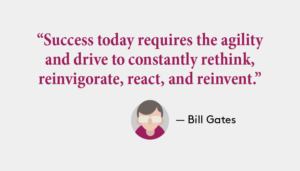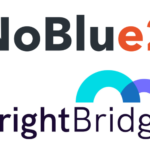One of the most important aspects of implementing CRM software successfully is to achieve employee buy-in. Regardless of how good the system you’re using is, if your staff are not using it properly then it’s not going to provide the results you want.
Why employee buy-in is important
A lot of business owners see their CRM software as being a solution in and of itself, failing to realise that without the support of their staff the full benefits will simply not be realised. Customer Relationship Management is a business strategy and your system is only as good as the people entering the data and utlising its tools. Implementing a CRM solution can be a big project and the best way to ensure that it’s successful is to get all your staff on board early.
Whilst you might think that the sales team are likely to embrace CRM since it will enable them to optimise their selling, you must demonstrate this to them; similarly it can be just as hard to sell to staff in other areas of your business who may view it as adding to their workload without providing any direct benefit to them.
With these points in mind, below are some tips for achieving employee buy-in for your new CRM system.
The best ways to achieve employee buy-in
1. Provide quality training
High quality training is vital when implementing CRM software in your business. When people have been doing something the same way for a long time, they can be resistant to change, particularly if they find the new system difficult to use because they haven’t been properly trained.
When providing training, it’s essential to make it an on-going personalised process rather than a simple ‘catch all’ training day for everyone. Organising a single day for everyone and covering every element of the CRM is unlikely to be successful. Make sure you understand exactly how the CRM will affect each team, and provide training sessions that are tailored to their specific roles. And remember, it’s essential to demonstrate not only their individual roles but how it fits into the larger system as a whole.
As your employees start to use the software, they may come across elements that they don’t fully understand or you may notice that there are some tools that aren’t being properly utilised. This is why it’s important to put in place an on-going training programme.
It’s also extremely important to ensure that the right people are delivering the training. In some cases, it may be better to recruit from within rather than seeking outside trainers, so that the training is delivered by someone your employees know and trust. In other cases, it might be better to utilise an external trainer who is an expert in the software.
2. Explain the benefits
This might seem like an obvious point but it’s easy to overlook. If you start by showing your employees how the CRM system works before you explain the benefits, then there’s a good chance that they’ll be put off and see it as something that’s merely going to complicate their job. They need to understand the reasons behind implementing the software, how it’s going to benefit them, and how it’s going to benefit the business as a whole. By stressing the benefits upfront you provide positive motivation and your employees are much more likely to embrace the new software.
Examples that have been successful in our experience are:
- No more “monday morning report writing” – a tangible saving of time from duplicated effort
- No more missed follow-ups – a tangible reduction in missed appointments and lost leads, resulting in more revenue
- Solid data with which to analyse process and behaviour – a much more accurate view of both successful and failed engagements resulting in more tailored and successful approaches in the future
3. Involve key staff members in the decision making process
The purpose of using CRM software is to make your sales, marketing and customer service processes more streamlined and efficient. The last thing you want is to make people’s lives more difficult because you haven’t properly considered how the changes may affect their specific roles or how some of your key business processes work. This will result in a lot more opposition from your staff.
The best way to prevent this from happening is to involve those who’ll actually be using the system in the decision making process and implementation. Listen to the features that your staff would like to be included or omitted and let them tell you how things work and how they would like them to work. You’ll find they’ll be much more welcoming of the change, and as an added bonus, they are then likely to act as advocates for the new system.
4. Assign a good project manager
Assigning a good project manager to your CRM project can be the difference between your project finishing on-time and within budget or not; a well run project will have your employees embracing your new software and seeing it as an advantage. An ideal candidate for project manager would be a senior employee who fully understands how the system will be used in all areas of the business and can clearly explain the benefits it will provide.
Your project manager should ensure that everyone involved in the implementation is motivated and knows exactly what their role is. They should be able to convince your staff of the benefits that using the software will bring to them and the business as a whole.
5. Listen to feedback
Big change within an organisation is always going to cause some level of disruption at first. Some of your employees might be struggling to adapt to using the CRM software or have suggestions for how it could be improved. You should always be receptive to this sort of feedback and do your best to accommodate people’s needs.
As mentioned above, an on-going training programme may be necessary to help people adjust. And by involving your staff in the project, and listening to their feedback, they will have ownership of solution and you will find that they will be much less resistant to the change.
NoBlue is a leading provider of NetSuite CRM – a complete CRM solution for growing businesses and established enterprises. Get in touch if you’d like more information on how CRM software could benefit your business.
Leave your thoughts in the comments box below.










